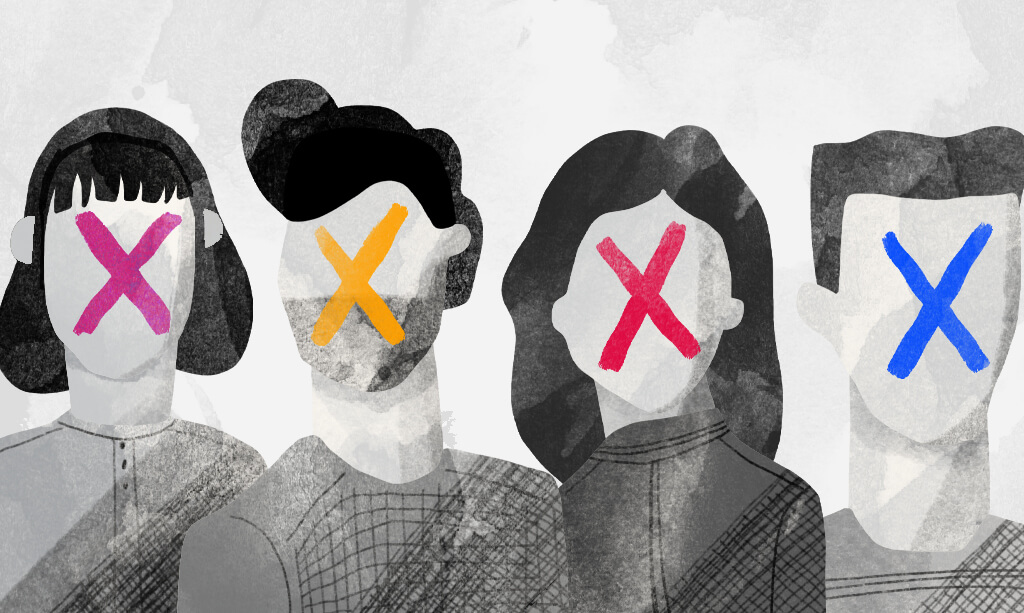
Imagine the MLB having mandatory drug testing, the church allowing priests to marry and have a family, or Congress actually writing legislation. Now imagine the monumental shift that those new policies would have on the respective entity: the blowback, the change in behavior, the rewards.
Now picture WHS changing a grading policy “that [has] been around for twenty years before I was a teacher,” according to Vice Principal William Hahn. That’s the sort of astronomical shift in grading that the grading committee has provided with their guideline for the future of educational assessment at Walpole High School.
And, like the changes discussed before (for its own entity), this is a deviation that will strikingly improve the future of grading at WHS.
The new philosophy’s purpose is to create stark distinctions between behavior of the student and the knowledge of the student, so that the two are dealt with differently. For example, if a student is caught copying another student’s homework — a behavioral problem — the student is given a behavioral consequence, like detention. However, the student may redo the assignment, because giving that student of zero merely reports on the behavior of the student, not the knowledge or understanding of that student. Presently, administration believes that “the policies in our classrooms that allowed the grade, although reflective of student learning, also brings in the behavior of the student,” according to Mr. Hahn. Simply put, the point of the committee was to categorize the comments and criticisms from teachers throughout all the departments, so that the administration could take those points of view into the writing of the philosophy.
So administration, complete with information from both studies and the committee, created a philosophy that does just that. The half sheet of paper with broad summaries of the policy does not seem imposing at first; however, after a perusal of the philosophy, it shows a detectable shift from the normal, customary policy. This is to be shown consistently when dealing with an array of assessments, whether it be homework, tests, essays, etc.
HOMEWORK POLICY
One of the more contentious topics included in the grading policy is homework — specifically the removal of homework completion from the grade of any teacher. “What the grading committee wanted to do was take homework completion out of grades,” said Mr. Hahn. “So let’s say that the consecutive behavior of me checking your homework quickly bumps your average up from an 80 to an 86, those six points should reflect your knowledge of math. However, we feel that me glancing over your shoulder does not accurately reflect your understanding of whatever subject.” Essentially, the policy aims to distinguish the kids in the back of the class that can speedily jot down answers and make it look like the homework was completed from the kids that sit down and take time out of his or her day to complete the homework. Sounds good, no? Should the kids who copy and are good enough to get away with it be regarded the same as the kid who spends an hour doing the homework and making sure he or she has the correct answer?
Nonetheless, there have been some sensible criticisms to this policy. Some teachers have commented that a homework assignment in, say, math, is given so that the students can teach themselves the problems and begin to understand sample types of problems, not master the problems right off the bat. These teachers believe that there is value in completing homework that should be counted towards the grade, and students should not be graded on collected assignments when they have hardly been exposed to the material.
However, in the interest of maintaining the spirit of the philosophy, homework completion does not reflect student learning, but student behavior. The student behavior of not completing the homework should be punished in it’s own realm, independent of the grade, liking the cheating example alluded to before. A collected assessment, however, is indicative of the knowledge and understanding of the material: essentially, collecting the homework and correcting singular problems is a fairer judgement of the learning of the student, not the behavior.
So does homework count for nothing? The answer to this is a strong no: Although there is no punishment on the students grade, there are certain consequences for not completing homework; however, these are behavioral consequences. A student may be required to report to homework club, a writing lab, or even detention if homework is not completed — behavioral consequences for a behavioral problem.
For example, in my Spanish class, we have this same policy: homework counts for nothing in the grade, however, if homework is not completed, the student has to report after school to the teacher and complete the assignment, usually under much stricter surveillance until the homework is completed well. This has caused no seismic shift in the minds of the students; homework is regularly done, aside from a few times, not unlike any classroom. The student’s knowledge affects the grade; the student’s behavior does not.
In order to give accountability to a student who rarely completes homework, there will be a spot on the report card that tells parents how much homework their kid is doing. This puts the onus on them to establish behavioral punishments — or whatever the parent chooses to do—for not completing homework. In the end, those who do their homework well and gain experience with the topic will do better on the quizzes and tests; those who do not, will not.
LATE POLICY / ZERO AS A LAST RESORT
Another controversial topic of the new philosophy is the the new late policy, which states that late work will not be punished and zeros will rarely be given. Akin to the complaints regarding homework, the concern here is that students will be able to choose their own due dates with no regard for possible punishment. However, this is far from true; again, the shift is to have the grade best reflect student learning. “If there’s a paper that earns a 92 for its grade, but it was one day late, so the grade was lowered to an 82, that grade reports on the behavior of the student, rather than the knowledge,” said Hahn. This hypothetical proves the overall message of the philosophy: the behavioral consequence of a late paper should not be punished in the grade — in this case, the ten point downgrade — but outside of the classroom. However, there is a flaw with this aspect: could a student just pass in a late paper the day before the terms ends, if they were okay with serving the punishment? “With all that being said, there is a last resort. It is not fair to teachers for students, at the end of the term, to dump a ton of papers on their desk. We have to have something within reason to enforce the rule efficiently,” said Mr. Hahn.
POLICY VERSUS PHILOSOPHY
This is why this philosophy is so effective; it preaches the right guidelines but also is ready for adaptation. This philosophy can act as merely a guide for a department or a teacher to allow for flexibility. No one can expect a teacher to not give a zero for a never completed assignment or not accept 20 late essays at the end of the term; this philosophy does not ask them to do that: it merely requires that the teachers of each department reflect on their practice and mold it around this new ideal, in order to allow the grade to best reflect the learning and knowledge of the student.
“Any business practice, in any field, where you’ve done something perpetually, and all of a sudden that policy changes, that forces you to reflect and examine your practice, which is never easy,” said Mr. Hahn. “However I think Walpole High School has some of the very best teachers, and although some of these changes are not easy, I think our teachers will embody this because they do what is best for the kids”. It will take years for this new philosophy to become policy, and maybe even longer for parents and teachers and students and departments to fully embrace it; however, this is a step in the right direction for the future of grading at Walpole High School.








